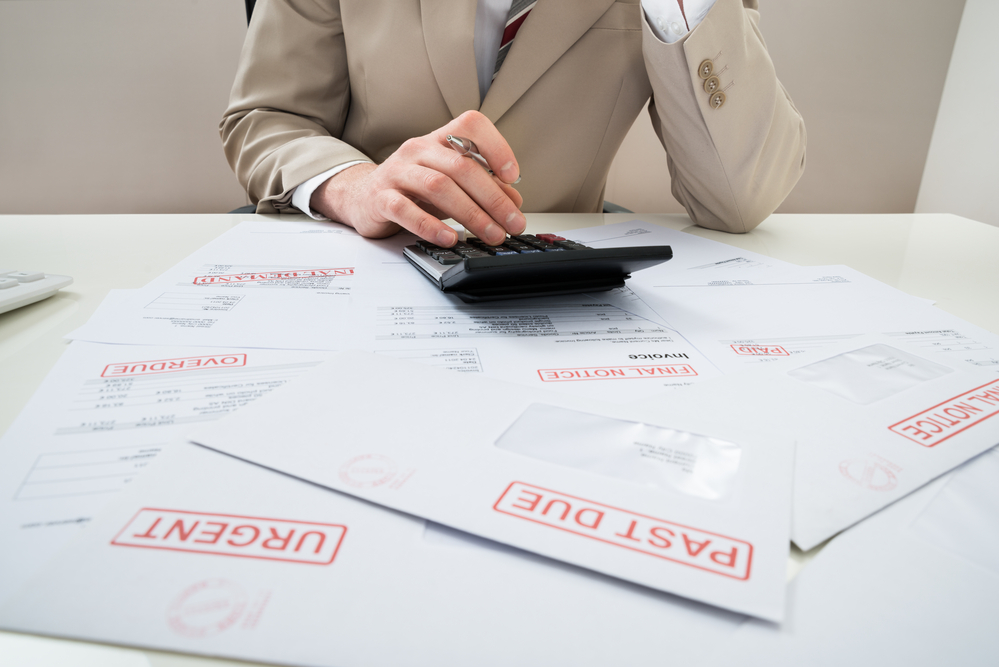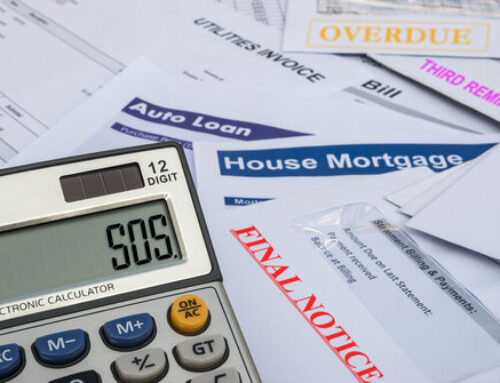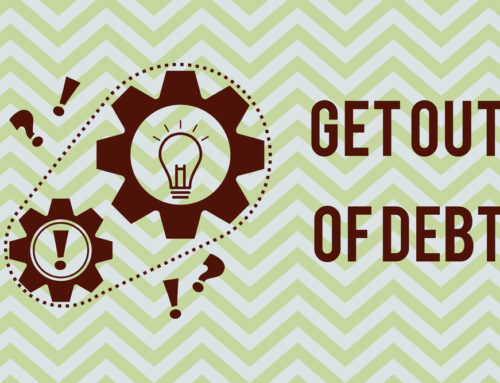If you are facing an enormous pile of debt, you may not have any idea what to do or where to start when it comes to dealing with your debts. Letters from collection agencies or creditors may be piling up and you simply have no idea how you got into this situation, much less who you owe for what or what the best way is to manage all the debt. Debt can come on suddenly due to a catastrophe that unfortunately occurs to you or a family member like an illness or loss of a job, or it can come on more slowly because of any number of factors.
However, what many people in this type of adverse financial situation do not realize is that, what you do not do is almost as important, if not more important, than what you actually do when it comes to dealing with debts. Having a clear understanding of not only what you owe, but who you owe it to, and understanding whether each debt is secured or unsecured is the first jumping off point for truly being able to manage your debt. The difference between secured and unsecured debt is essential to understand in order to adequately manage your debt situation and not violate some of the cardinal rules of debt management that could see you losing your car or even your house because you chose to pay off a credit card instead of a secured debt like your mortgage or a car loan.
Secured vs. Unsecured Debt
Many people struggling with debts may not know the differences between the different types of loans and, in particular, the difference between secured and unsecured debts. Unsecured debts are loans that have been extended by a lender without taking some sort of security (or ownership) interest in an asset you may have. These can be more easily settled or wiped out in bankruptcy, whereas a secured debt is one that is tied to a specific asset that you have agreed will act as collateral for the debt. Examples of some common types of unsecured debts are credit cards or personal loans you may have received from a bank. Secured debts include mortgages, car loans, or any other type of loan that is secured by an ownership/ interest in the asset such as your home or a car. If you don’t pay a secured debt, the creditor can take the asset that you pledged as collateral for the loan, such as your car or house.
Some Money Moves Not to Make if You Are Facing Overwhelming Debt
You should never pay an unsecured debt in lieu of a secured debt when you are attempting to manage debt on your own. This is because choosing to pay off your credit card versus skipping a required monthly payment on either your house or your car could cause you to end up losing your house or car if the lender chooses to repossess your car or seeks to foreclose upon your house. However, the worst that could happen to you if you skip making the payment on your credit card is that the credit card company will either file a lawsuit against you or may cancel the credit card.
Do Not Raid Your Retirement Accounts to Pay Unsecured Debts
Raiding your retirement accounts, whether an individual retirement account or a workplace 401-k or other retirement account to pay down your debts is another move that is not recommended when you are trying to manage your debts. Doing so can trigger tax liabilities you may not be anticipating and can also trigger a surprise tax bill that will create yet another debt that you must pay back.
Understand Which Debt Is Most Important to Pay First
Lastly, the important thing to remember is that the most important debt may not be the one for which a creditor or collections agency is hounding you the most aggressively. For example, a credit card company may borderline harass you to try to convince you to pay them first exactly because they know that, if you either declare bankruptcy or choose to settle your debts, then they will receive, much lower than the balance they feel is owed. In contrast, particularly if you are trying to stay in your house or keep your car, a mortgage lender will foreclose upon your house or repossess your vehicle if you default upon your mortgage or a car loan. This is one reason that the “squeaky wheel gets the grease” is not the best advice when it comes to debt management.
Understand Your Debt in Order to Make an Informed Decision
Understanding the different types of loans, in particular the difference between secured vs. unsecured debts is crucial towards managing your financial situation when you find yourself facing a mountain of debt. The distinction between the two types of debt and understanding the relative strengths of the claims that your creditors have against you and your assets is critical in properly managing your debt, no matter how much debt you have incurred and how many different creditors and types of debts you have. Understanding that using retirement assets to try to pay down debt can have far-reaching effects not only on your long-term ability to retire, but in the short term because you may unintentionally trigger income tax liabilities for yourself. These are several important lessons that any person who is in debt must know and understand. Contact us if you have questions or want to discuss if debt settlement is the right thing for you.






Leave A Comment